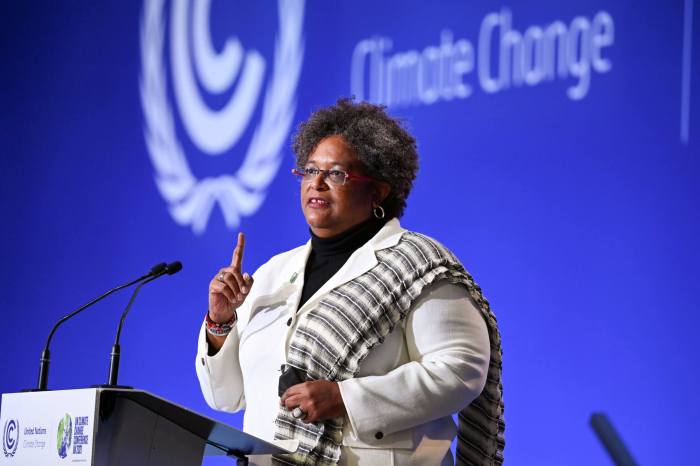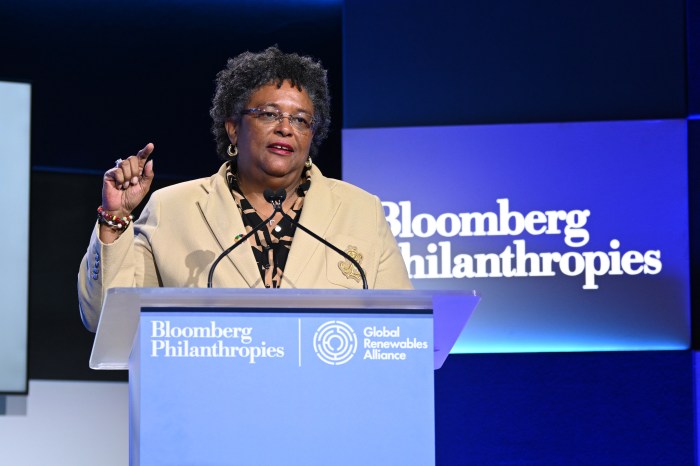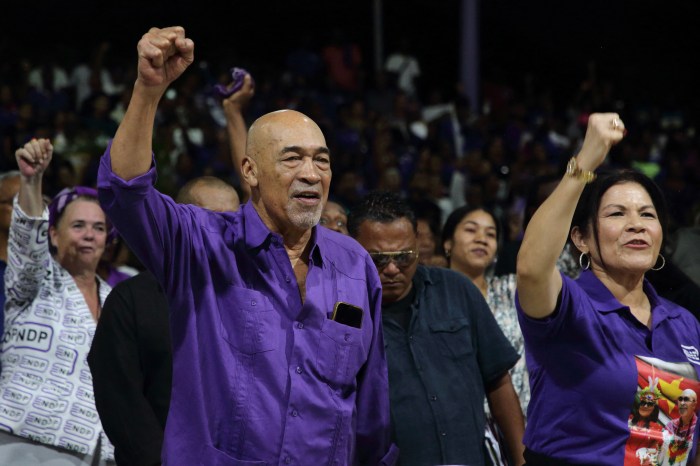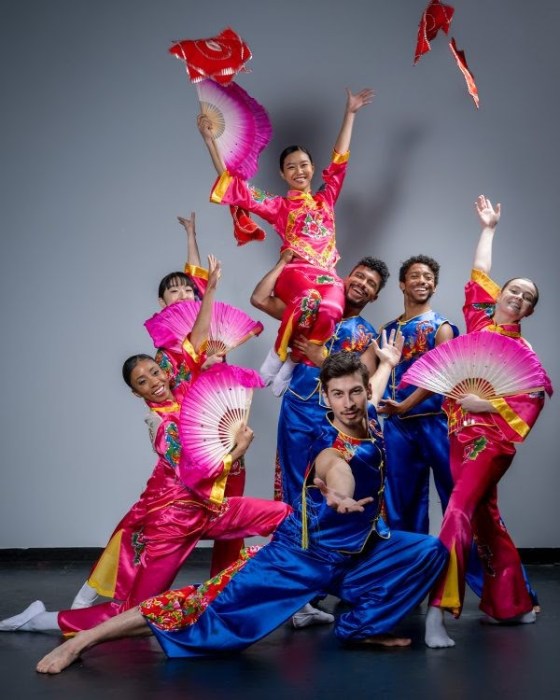Justice Paula-Mae Weeks has reportedly settled in nicely into her new role as the first woman to serve as president of Trinidad and Tobago after being sworn as head of state at a well attended public ceremony on Monday.
Almost no section of the republic’s society had opposed her nomination last year to replace fellow Judge Anthony Carmona. In fact, the loudest voices of support had come from the main opposition United Congress (UNC) which had incidentally given the country’s its first woman prime minister in the form of attorney Kamla Persad-Bissesar.
Persad-Bissessar served a single five-year term as head of government before being booted out of office in 2015 amid swirling accusations about corruption, nepotism and graft during her tenure.
Justice Weekes’ inauguration ceremony was broadcast live on both traditional and social media, allowing her to tell the nation, the island’s Caribbean neighbors and the wider world that the time had come to heal a nation grappling with more than 400 mostly gun murders each year, other forms of violent crime, fear, unemployment and serious issues.
“Telling us that Trinidad and Tobago is currently close to the point of no return, crime, corruption, racism, a dismal public service and an ineffective judicial system and other problems are so thick on the ground that we feel all is lost if we are not there already — a failed state however defined,” she said, pointing to some of the bucket list of problem besetting the oil and gas-rich nation just north of the South American coast.
But she said “we must trust in time. We will reap the benefits of our efforts. So be a light at your home, instill discipline, model good behavior. You can be a light in your school, pay more attention to the lessons in your home, protect the vulnerable, respect those in authority. Light can be seen in a community, where people care for their environment and are tolerant of the views, beliefs and practices of others.”
Her nomination to the highest position in the country comes just three months after neighboring Barbados also chose a woman judge to become the island’s governor general.
Not being a republic like Trinidad, the position in Barbados is for the appointment of a governor general rather than president. That person serves as Queen Elizabeth’s representative in Barbados. No such thing applies in Trinidad as it has basically severed ties with Britain, its former colonizer.
In early January, Justice Sandra Mason was sworn in as governor general of Barbados, the second woman to do so after Dame Nita Barrow. She has the distinction of being the first woman admitted to the bar on the island and its first female appeals court judge.
The two will sit at above the political and partisan fray in their respective countries and will join a burgeoning list of distinguished women holding that position. Some are also leaders of the main opposition parties and could be elected as prime ministers in the coming months.
For example, polls in Barbados are showing that attorney Mia Mottley will more than likely defeat incumbent Prime Minister Freundel Stuart when elections are called before mid year as is constitutionally mandated.
The 30-member parliament has already been dissolved. It is just for Stuart who is running the clock to almost the very last, to call a date as the island economy sags, foreign exchange reserves are at an all time low and as a major sewage problem on the south coast is causing hotels and other businesses millions in lost revenues weekly.
There are several women at the national helm both in the 15-nation CARICOM bloc of nations and the wider Caribbean.
Lucille George-Wout has been governor of Curacao, a Dutch territory since November of last year. In nearby Aruba, Evelyn Wever-Croes is prime minister in Aruba as well as Sharlene Cartwrtight-Robinson in the Turks and Caicos Islands as it tries to recover from that devastating 2017 hurricane season.
As well, Dame Cecile La Grenade is governor general of Grenada, Dame Marguerite Pindling has been governor general of The Bahamas since 2014. Like Mottley of Barbados, Persad-Bissessar of Trinidad is waiting to become prime minister again if her party wins the 2020 general elections. And no one forgets that social worker Portia Simpson-Miller had been the immediate past prime minister of Jamaica, serving at the same time with Persad-Bissessar.
























